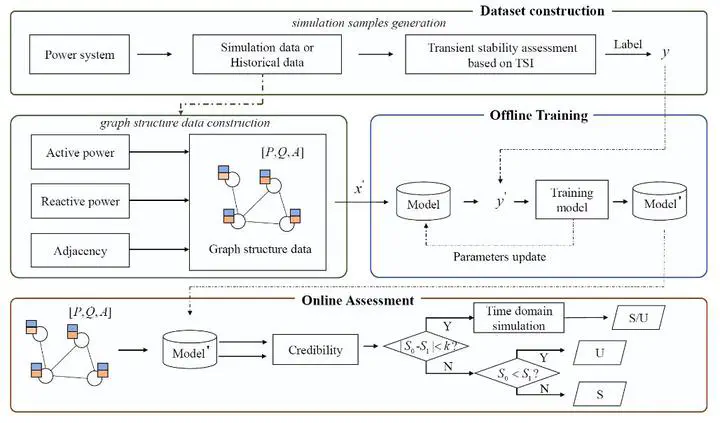Distribution-Aware Graph Representation Learning for Transient Stability Assessment of Power System

摘要
The real-time transient stability assessment (TSA) plays a critical role in the secure operation of the power system. Although the classic numerical integration method, i.e. time-domain simulation (TDS), has been widely used in industry practice, it is inevitably trapped in a high computational complexity due to the high latitude sophistication of the power system. In this work, a data-driven power system estimation method is proposed to quickly predict the stability of the power system before TDS reaches the end of simulating time windows, which can reduce the average simulation time of stability assessment without loss of accuracy. As the topology of the power system is in the form of graph structure, graph neural network based representation learning is naturally suitable for learning the status of the power system. Motivated by observing the distribution information of crucial active power and reactive power on the power system’s bus nodes, we thus propose a distribution-aware learning (DAL) module to explore an informative graph representation vector for describing the status of a power system. Then, TSA is re-defined as a binary classification task, and the stability of the system is determined directly from the resulting graph representation without numerical integration. Finally, we apply our method to the online TSA task. The case studies on the IEEE 39-bus system and Polish 2383-bus system demonstrate the effectiveness of our proposed method. The code is available at https://github.com/kxchern/dkepool-tsa

